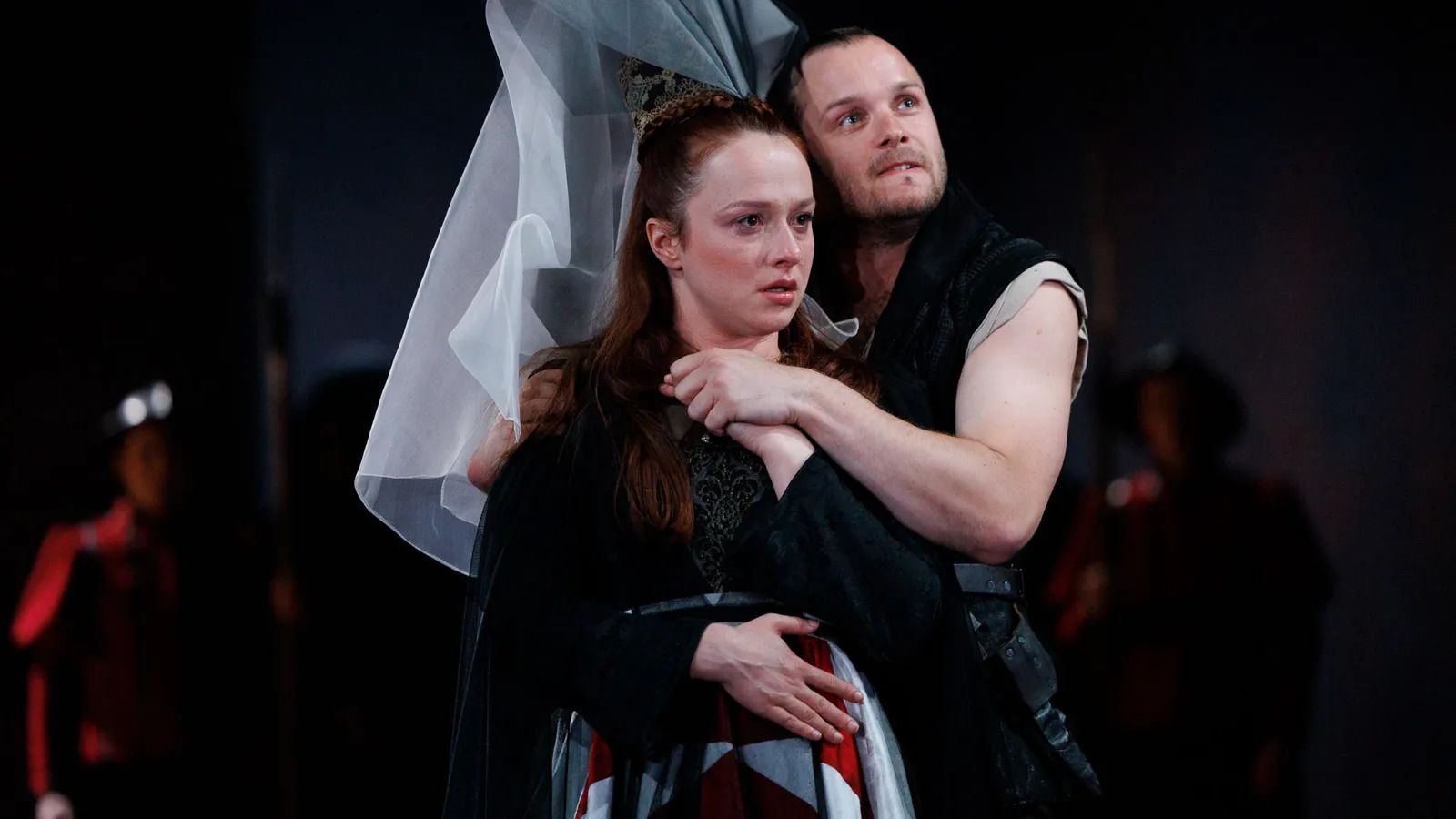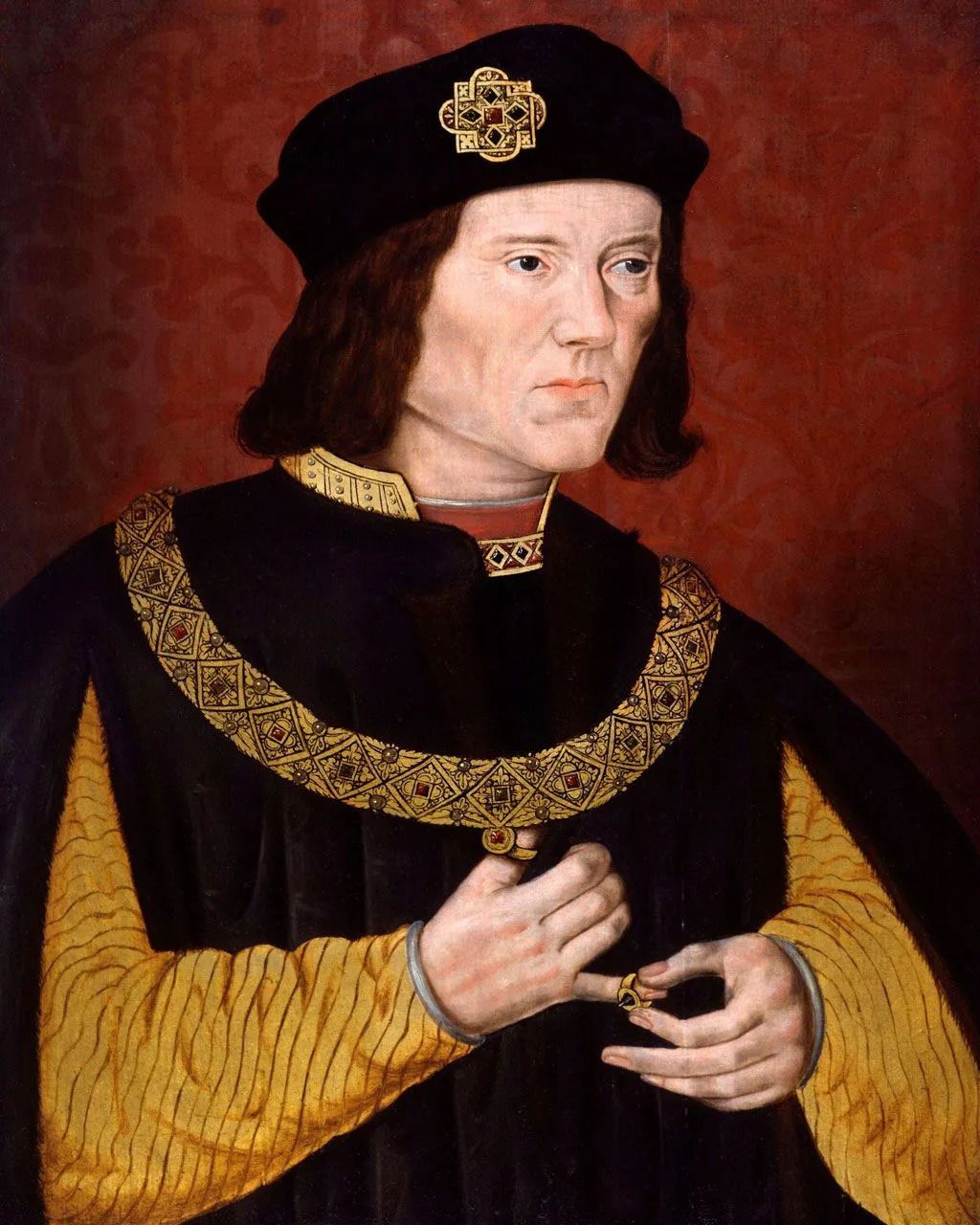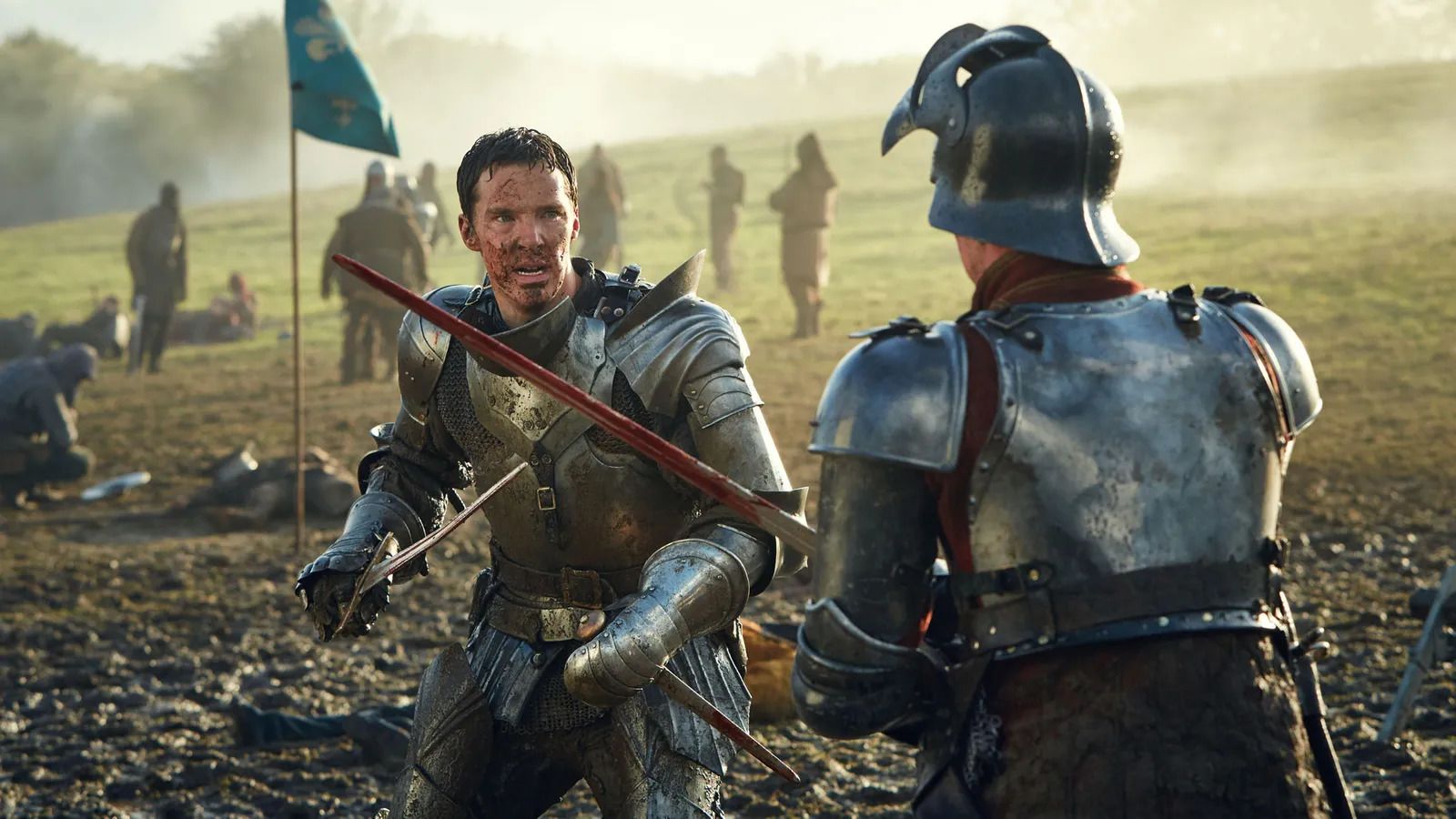
Why Shakespeare's Richard III became a controversial villain
Richard III has long been a figure of fascination – inspiring the play that remains one of William Shakespeare's most performed works on stage and screen, regularly staged on both sides of the Atlantic. It's a role that has been tackled by famous actors from Laurence Olivier to Denzel Washington, with Black Panther star Danai Gurira the latest high-profile figure to take the role on the New York stage.
However, in the UK a production is currently running that is considered a landmark in the history of the role: it is the first time the 61-year-old Royal Shakespeare Company has cast a disabled actor as lead in the play. Richard – whose disability is not specified but is described in the play as having a limp, a withered arm and being "bunchback'd" – is one of literature's most famous disabled characters, but has only rarely been played by disabled actors.
 Arthur Hughes (pictured right) is the first disabled actor to play the
lead in a production of Richard III for the UK's Royal Shakespeare
Company
Arthur Hughes (pictured right) is the first disabled actor to play the
lead in a production of Richard III for the UK's Royal Shakespeare
Company
Arthur Hughes, who plays Richard, has hitherto been best known for his roles in long-running British radio soap The Archers and Netflix series The Innocents. He was born with radial dysplasia, which affects his right arm, and recognises the significance of his casting: "Richard is one of the most famous disabled characters in the English-speaking world," he tells BBC Culture. "To be playing him on one of the largest Shakespeare stages in the world and to be a disabled man doing it – it's an honour. It's also a good sign of where we're moving towards."
Richard is a modern-day despot. The play might have been written hundreds of years ago but these people still exist – Arthur Hughes
While Hughes is bringing his lived experience to the role like few actors before him, he is also keenly aware of the play’s wider contemporary relevance. "Richard III is a political thriller. Shakespeare uses tyrants like Richard as commentaries on power; how power draws people who aren't suited to wielding it. Once Richard gets the power he desires, he has no idea what to do with it, because he's so unfit to lead – like many of our current leaders," he says. "So many of our discussions have been around what's happening in Number 10 [Downing Street], what's happening in the Kremlin. About the circles of enablers and sycophants who are in every government, every system of power. Richard's paranoia is so like Putin – he expects ultimate loyalty while giving none to anyone else."
It's this relevance, as he sees it, that ensures the story still compels: "This is a modern-day despot. The play might have been written hundreds of years ago but these people still exist. They are the most fascinating, the most deadly, and we want to watch them on stage," he says.
The real Richard III
But does Richard III deserve the reputation that Shakespeare has created for him? For while Shakespeare's Richard is unarguably a villain, the historical figure is more contested. Richard III was the last Plantagenet king, whose defeat in 1485 at the Battle of Bosworth against the man who would become Henry VII marked the beginning of the Tudor dynasty. But how did a man who ruled for a mere two years come to be one of the country's most notorious – and divisive – monarchs?
Richard's ascent to the throne – over the claims of his dead brother's son, the short-reigning King Edward V – is shrouded in contention. Writing for a Tudor monarch and basing his material on Tudor sources, Shakespeare paints this as a bloody, despicable journey, with Richard gleefully disposing of anyone in his way. That includes his young nephews, King Edward V and his brother, the famous 'princes in the tower' who Richard allegedly had murdered in the Tower of London mere months after his brother Edward IV's death in April 1483. But there have long been attempts to separate the real man from the fictional character.
 The truth about Richard III as a historical figure continues to be contested
The truth about Richard III as a historical figure continues to be contested
There is a Richard III Society dedicated to rehabilitating his reputation, and his role in the boys' murder remains the subject of both academic and mainstream debate. Josephine Tey's 1951 novel Daughter of Time sees a modern police officer – Scotland Yard Inspector Alan Grant – investigate the allegations and exonerate Richard; a 1984 televised mock trial on the UK’s Channel 4 found him not guilty. While it is unarguable that Richard took the throne over the rights of his nephews – claiming his brother Edward's marriage to their mother was null because Edward was secretly married to another woman, thereby making the children illegitimate and unable to inherit – there remain questions over the boys' fate. The Missing Princes Project, led by Society member Phillipa Langley – the amateur historian who also commissioned the dig to find Richard's remains, which were discovered underneath a car park in Leicester in 2012 – claims to have found evidence that Edward V was not killed, but sent away under a new name. However, even if we concede Richard's guilt – Langley's co-author Michael Jones believes that Richard had his nephews killed – it's easy to argue he's no worse than other monarchs of the period, an era when killing off potential rivals – whatever their age or innocence – was simply ruthless pragmatism.
If the truth of his actions cannot be definitively ascertained, the unearthing of his remains yielded valuable information about his life. The search for his bones garnered significant interest around the world, and was the subject of a 2013 documentary – The King in The Carpark – as well as the upcoming Stephen Frears film The Lost King, starring Steve Coogan and Sally Hawkins, set to be released this autumn. It also shed light on the accuracy of historical depictions of Richard, the man.
"The discovery of Richard III's body demonstrated unequivocally that he was indeed severely disabled," says Dr José A Pérez Díez, lecturer in Early Modern Drama in the School of English at the University of Leeds and deputy co-chair of the British Shakespeare Association. "His pronounced scoliosis must have affected his mobility and physical posture quite considerably. Still, he was the last English king to die on the battlefield, not just commanding his troops, but physically engaged in combat. This really tells us of a person who was determined to overcome his disability in the pursuit of his military and political career."
Examination of the skeleton proved that what has often been dismissed as enemy propaganda is based in fact: "The archaeological discovery also tells us that Tudor depictions of Richard III as a 'crookback' were physically accurate," Dr Pérez Díez confirms, though stressing that "Shakespeare wrote a fictional character who is also disabled, but whose malicious personality may have nothing to do with the real Richard."
Richard is written as disabled, so let's give disabled actors this rich character – Arthur Hughes
The play's concept of disability as an outward sign of inner evil is hugely problematic for modern audiences. From his opening monologue, Richard is framed as seeking power because his disability alienates him from the peacetime court of his brother – he is "not shaped for sportive tricks". His appearance is repeatedly insulted by the other characters, with everyone from his own mother to his future wife implying his looks make him devilish, a "lump of foul deformity".
Ben Spiller, artistic director of theatre company 1623 and a disabled artist, comments: "Shakespeare's Richard is based mainly on historical chronicles that made him out to be a nasty piece of work because he was disabled – a damaging link between body and morality." For Hughes, Richard’s mistreatment at the hands of a world that holds such ableist views is key to understanding his behaviour. Playing the character in the RSC's Wars of the Roses (aka Henry VI part III) before taking Richard centre stage has allowed a deeper insight into the man's motivations: "Evil people have a reason for why they make their decisions, and Wars of the Roses is full of these reasons. The language that people use to talk to and describe him in both plays is horrible. He's a man in a society that isn’t built for him. People don't see him as someone to be feared or desired or of any worth – and some people still think that about disabled people. If conscience is this shared set of values that we as society have about what is good and what is bad, Richard's reasoning is 'why should I listen to this conscience, when I'm not welcomed in this society?'"
 In the 2016 BBC series The Hollow Crown, Benedict Cumberbatch appeared as Richard with a CGI hump
In the 2016 BBC series The Hollow Crown, Benedict Cumberbatch appeared as Richard with a CGI hump
At the same time, Hughes stresses that the character is far more than his disability: "Richard is incredibly charismatic, manipulative and intelligent. He's capable of a lot, and he's disabled. Shakespeare’s made him all these things." This is echoed by Spiller: "It's not because he's disabled and therefore evil that he does these awful things. He’s a dictator who happens to be disabled."
The casting question
If Richard only "happens" to be disabled, does that justify casting non-disabled actors in the part? One of literature’s most charismatic villains, he is theatrical catnip, with big-name, non-disabled actors from Olivier to Washington, Mark Rylance, Kevin Spacey, Ralph Fiennes and Sir Ian McKellen all tackling the role – often using questionable props.
Dr Hailey Bachrach, a Shakespeare academic at the University of Roehampton, points out that "for generations, leading men like [18th-Century actor] David Garrick performed Richard without any sign of disability at all", but "there's a troublingly recent history of actors putting on the types of prosthetics and mimicry that we have long since recognised as wholly inappropriate when depicting other marginalised groups onstage, yet continue to collectively accept when it comes to the performance of disability."
Many of these performances, of course, predate current conversations about representation. Sir Anthony Sher – the late husband of Gregory Doran, the outgoing artistic director of the RSC, who directs this latest production – won huge acclaim back in 1984 as a Richard who moved about the stage on crutches. But as recently as 2016, the BBC's The Hollow Crown series of Shakespeare history play adaptations featured Benedict Cumberbatch (whose Sherlock castmate Martin Freeman also played Richard on stage) delivering the famous "winter of discontent" monologue shirtless, the better to display his CGI-hump.
For Hughes, such gimmickry should be consigned to history. Casting able-bodied actors also wastes an opportunity to address the woeful under-representation of disabled people on stage and screen. "Richard is written as disabled, so let's give disabled actors this rich character. Every disability, every disabled actor, will bring something unexpected and new, a different depth that you just won't get from a non-disabled actor."
Hughes is not the first disabled actor to play Richard – others include Mat Fraser for the Northern Broadsides theatre company in 2017 and Daniel Monks in the 2019 Donmar Warehouse production of Mike Lew’s Teenage Dick, which transposes the Richard III plot to an American high school. Spiller, whose theatre company focuses on marginalised artists, hopes this is a sign of overdue change: "It's a part that has been played by non-disabled artists for far too long. It's thrilling that Arthur will continue what I hope will be a continuous line of disabled actors playing Richard."











